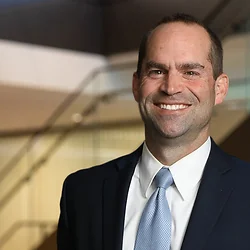What You Need to Know About Chicago's New Paid Leave Ordinance
On June 22, 2016, the Chicago City Council passed a "Paid Sick Leave Ordinance," joining twenty municipalities nationwide, including New York City, San Francisco, and Seattle, requiring employers within their jurisdictions to provide paid sick leave to employees.
Chicago's Ordinance, which goes into effect on July 1, 2017, will require all employers that (1) employ at least one eligible employee (i.e. someone who works at least 80 hours in any 120-day period) and (2) maintain a business facility within the Chicago city limits, to provide at least 1 hour of paid sick leave for every 40 hours worked, up to a maximum of 40 hours per 12-month period. Employees can carry over up to half (20 hours) of their accrued paid sick leave from one year to the next. For employers covered by the Family and Medical Leave Act, each covered employee may also carry over up to 40 additional hours of unused accrued paid sick leave to use for FMLA eligible purposes. Employers must pay covered employees for paid sick leave at the same rate and with the same benefits that the employee regularly earns during hours worked.
Under the Ordinance, if an employer has a paid time off policy that already meets the requirements of the Ordinance, then the employer is not required to provide additional paid leave. Further, absent any contractual agreement providing otherwise, an employer is not required to provide financial compensation for unused paid sick leave at the time of an employee's termination or other separation.
The Ordinance provides that a covered employee may use paid sick leave when: (1) he or she is injured, or for the purpose of receiving medical care, treatment, diagnosis, or preventative medical care; (2) a member of his or her family (broadly defined) is ill or injured, or to care for a family member receiving medical care, treatment, diagnosis, or preventative medical care; (3) he or she is the victim of domestic violence; or (4) the employee's place of business or the employee's child's school has closed because of a public health emergency. An employer must allow a covered employee to begin using paid sick leave no later than the 180th calendar day following the commencement of his or her employment.
If paid sick leave is reasonably foreseeable, an employer may require up to seven days' notice before leave is taken. If not reasonably foreseeable, notice must be given as soon as practicable. When an employee is absent for more than three consecutive work days, an employer may require certification that the paid sick leave meets the Ordinance's criteria.
Under the Ordinance, an employer may take disciplinary action against an employee, up to and including termination, who uses paid sick leave for purposes other than those set forth in the Ordinance. Conversely, if an employer violates the Ordinance, the affected employee may recover damages in a civil action equal to three times the full amount of any unpaid sick time denied or lost by reason of the violation, together with costs and attorneys' fees.
The Ordinance requires that employers post notices advising employees of the right to paid sick leave, while also providing notice to new employees with their first paycheck.
The Civil Consulting Alliance, a public-private sector collaboration, has estimated that the Ordinance will lead to less than a 0.7-1.5% increase in labor costs for most employers, while providing projected benefits of $116 million annually.
Employers should begin preparing now for the Ordinance, including reviewing their sick leave or paid time off policies, ensuring mechanisms are in place to track employee leave accrued and used, and updating employee handbooks.
For more information about the Ordinance, please contact Alex Marks at (312) 840-7022 or amarks@burkelaw.com.
Related Professional
- Partner
Related Practices & Industries
Sign-Up
Subscribe to receive firm announcements, news, alerts and event invitations.


